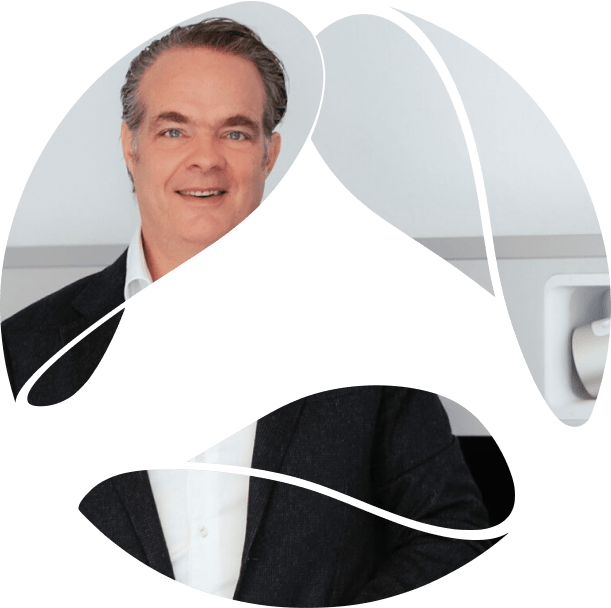After 30 years since its introduction, the ‘sustainability’ concept has evolved from being a flat vapid buzzword into a strategy essential. Today’s businesses are redefining new ways of growth backed by the promise of digital and technology delivery. That is, staying relevant to the customer in the 21st century is about being profitable and responsible. How exactly does the ability to gain financial success and societal value work?
→ Customer experience in the financial industry
When we were building Avenga, a new baby of enterprise scale, creating sustainable value was not just a cornerstone of our management strategy, but also, and I will take the risk of sounding too loud, a part of the company’s DNA. The importance of becoming a profitable business is undeniable, but the backbone of our company is how we impact our clients, partners, and individuals in the wider world around.
“With the present unprecedented global situation looming over us, business is expected to demonstrate responsibility, as well as ethical and transparent practices towards customers, communities or governments. Avenga, like many other brands around the world, has gone into overdrive to help fight the health and humanitarian crisis, be it basic provisions for medical means or creative software solutions for clinical trial accelerations. For better or worse, sustainability has become a way of life.”
Sustainability starts on the very first day of operation
Previously, when people talked about sustainability, they meant social justice and human needs. Later, they suggested that sustainability was about environment protection and the conscious use of resources. Today, the notion of business sustainability has become a much broader concept that implies large-scale system-level changes in how we do business. I’d say, currently strategic sustainability is more of a social and technical challenge as many industries are heading toward digitalization.
→ To change or to pretend a change – that is the question
We are lucky to have millennials and generation Z’s, the first generations that are more conscious about environmental and social issues. Not because they are smarter or kinder than the previous generations, but because they have better access to data, a more rounded education and are more tech-savvy. This all creates a megatrend of sustainability, and businesses need to follow to stay relevant. Company morale increases the loyalty of both employees and consumers, and big brands like Coca-Cola, Ikea, IBM and Ford prove this by strengthening their sustainability year after year.
“Brands that are able to strategically connect (sustainability) to actual behavior are in a good place to capitalize on increased consumer expectation and demand.”
At Avenga, we’ve managed to devote our full attention to this matter. The moment we created our new brand, we started integrating sustainability into our style of doing business. For us, and for me in particular, being sustainable means building a responsible business and a business that cares.
The conventional sustainability vs Avenga’s way to improve it
A ‘sustainable business’ is usually the one that follows these trends:
- Driving efficiency, reusing and recycling
- Growing sustainable investments
- Reducing carbon emissions
- Advancing renewable energy
But I believe it’s not enough. While following key trends is critical, building your own culture of sustainability should be the first step.
At Avenga, we believe that following the broader meaning of sustainability allows for the transformation of corporate values and culture on all levels, from top managers and management styles, to the way our employees commute, travel and rest. There are no separate notions of mentorship, technologies, everyday work and eco-consciousness in our company. All of them are indispensable components of corporate behavior and are equally important in our extended interpretation of business sustainability. 
At Avenga, we adopted the ESG (Environmental, Social, Governance) approach and adjusted it to our initiatives and focuses. This wasn’t a decision we made at the spur of a moment; it was preceded by weeks of internal discussions and analysis. We came up with a broader notion of sustainability that reflected the values of our key executives and stakeholders, that followed and coincided with global trends.
“Social responsibility has become a distinct point of sustainability metrics for every business, specifically today, with developments in the global economic and health scenes. It’s either a company, for most of the cases, driven by values and the employees’ initiatives, which place social activities as a top priority, or declared sustainability remains just a documented item.”
Because Avenga is a multinational company located in different countries across the globe, we’ve adopted an approach of nurturing the local societies of every office. We care about the people within our company and serve the communities they come from by supporting a healthy and diversified atmosphere in the workplace and encouraging social initiatives outside of it.
During these times of uncertainty
Driven by the commitment of our people, there are some local projects and initiatives we support as a part of our Avenga Sustainability program:
Avenga supports a local emergency project, ‘United for Health,’ which is raising funds for the purchase of 100,000 express coronavirus tests.
We joined Folding@home, a distributed computing project by Stanford, donating our computational resources to researchers to develop a cure for COVID-19.
We support several local medical institutions and make sure that they are fully equipped with all the needed medical supplies.
Our team developed a free mobile app, Bank Krwi, which assists blood donors in Poland. It allows the donor to select the location of a blood bank center and see the need for a certain blood type.
Our employees are holding online pro bono advisory sessions on brand, communication, digital, strategic & tactical marketing.
→ Data science perspective on Covid-19: a real life example
Serving the community
Social responsibility is a part of our company’s mission. We’re serving the community on a daily basis through donations, fundraising, creating educational programs, donating blood, providing free professional services and many more. Avenga cooperates with organizations like Made by Dyslexia, StraßenKinder e.V. and Frauenhäuser Köln, Hebron IT Academy, Run for a Cause, Hour of Code and Women of Fortune.
We are lending our expertise to various university programs and projects for unprivileged children and orphanages. I’m excited to share that Avenga is launching cooperation with a startup incubator in Berlin that connects and educates innovators in healthcare. Avenga’s tech and business experts will be consulting pro bono to support notable healthcare startups across Europe.
Additionally, we encourage our employees to choose social activities themselves and we grant one additional paid working day a year so they can contribute their time to community engagements. Thinking about just one person this may not sound like a lot, but it totals up to 11,670 hours of community service a year.
Increasing employee satisfaction
Women in the tech industry? Sure thing! Men on paternity leaves? Absolutely. We are building a sustainable and fair environment for all employees, offering mentorship and professional development as well as flexible scheduling policies, savings plans, recognition policies and more. The value of diversity, equality and inclusion is one of our priorities, and the successful merging of separate companies into a single Avenga brand is the best illustration of our respect for cultural differences and personal choices. That is probably one of the reasons our employee satisfaction rate is 89%.
Supporting local businesses
We’re trying to serve local communities, not only through social initiatives, but also by doing business with local producers who promote environmental sustainability and economic justice. In 2020, we plan to work exclusively with local suppliers and use only fair-trade certified goods.
“With the current crisis-driven situation in the world, environmental issues have seemed to fade away. But we should not relax, though. Crises come and go, and the economies will eventually return to routine operations resulting in pollution, emissions, and abuse of nature. So, we are making sure all our policies are in place and that they keep on working.”
Becoming CO2 neutral still applies
Since we understand that it’s not about reducing emissions only, we keep improving our Green Travel Policy and Green Behaviour Policy, offering alternatives and options. Avenga continues to support a plethora of environmental projects both locally and globally. Definitely some of those have to be put on hold but:
- Green behavior is a lifestyle at Avenga, be it in or out of the office. We sort, use recycled paper, try to avoid plastic, use every piece of equipment efficiently, switch to paperless and educate others about on-going eco.
- With the aim of cutting our business trips, we have installed advanced video conferencing equipment for efficient remote communication. In today’s circumstances, the equipment has proved to be a huge benefit in keeping our interactions with clients and teams smooth. While still having to fly due to our offices’ and clients’ geographies, we are planning to support the TrillionTreeCampaign, a global forest restoration initiative within the UN Environment Program. This means that we are planning to compensate for our business and personal trip CO2 emissions by planting trees.
We, at Avenga, will definitely continue reducing our CO2 footprint and to be a pioneer in an industry that currently accounts for 3.7% of the global greenhouse gas emissions.
“Headquarters? Hierarchies? We don’t need them. For us, ideas count more than titles and positions, so there’s no hierarchy in Avenga. Strategic sustainability is about self-conscious and initiative individuals in the first place, and how can you reach this if there’s always someone dictating what you should do?”
Transparency, fairness and equality are the pillars of a successful modern company, and this is stated in our Business Operations Manual (BOM), which serves as a guide to all our offices. To be more specific, the BOM highlights Avenga’s strategy and values, as well as a set of programs, policies and procedures that are officially defined within the company. It’s aimed at helping both employees and C-levels to understand their roles within our company and the community worldwide.
We are devoted to global, long-term changes. That’s why we will be measuring and analyzing the sustainability effect of Avenga, in order to improve the numbers every year. In fact, we are planning to release yearly sustainability reports to entice more companies to follow our example.
Now, let me sum up everything I feel in a single sentence: strategic sustainability means contributing to the global economy by giving people opportunities to work, learn, grow and change the world for the better. At Avenga, everyone believes in this.














